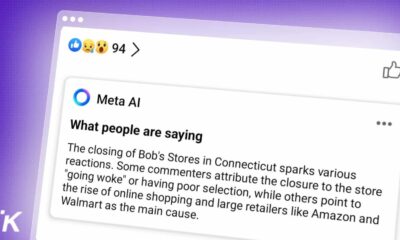Lawmakers are trying to make tech companies like Apple provide encrypted data to law enforcement
Here we go again.

Just a heads up, if you buy something through our links, we may get a small share of the sale. It’s one of the ways we keep the lights on here. Click here for more.
After the US government and the FBI showed discontent with Apple over its policies regarding a terrorist’s iPhones, it looks like a group of Republican senators is now trying to push a new act that would require tech companies to provide access to encrypted data in criminal cases.
Called the Lawful Access to Encrypted Data Act, is a bill meant to “bolster national security interests and better protect communities across the country by ending the use of ‘warrant-proof’ encrypted technology by terrorists and other bad actors to conceal illicit behavior.” Senate Judiciary Committee Chairman Lindsey Graham (R-South Carolina) and U.S. Senators Tom Cotton (R-Arkansas) and Marsha Blackburn (R-Tennessee) are the people behind the proposed bill.
What it means, essentially, is if/when law enforcement believes a case can be helped by encrypted data found on things like smartphones and within messaging apps, that tech companies must provide access to this data. The thing is, and this is important, is that what makes encrypted data so secure is that not even the tech companies can directly access the data. Having some sort of “backdoor” or access key that magically unlocks the data within would make data security for everyone more precarious.
That said, the proposed bill isn’t asking for a direct backdoor, instead, leaving it up to the tech companies to decide how the information can be accessed. Security professionals have long said this is an impossible request, however.
Currently, tech companies like Facebook and Google are protected from such laws through Section 230 of the Communications Decency Act of 1996, which provides immunity to tech companies in regards to user content on the platforms. This also includes messaging platforms like WhatsApp, Signal, and more.
According to CNET, Facebook has released a statement regarding the matter, noting, “End-to-end encryption is a necessity in modern life — it protects billions of messages sent every day on many apps and services, especially in times like these when we can’t be together.” The company goes on to state that something that allows access to encrypted data would make “all of us less safe, not more.”
In a statement, Graham notes that “Our legislation respects and protects the privacy rights of law-abiding Americans.” But, and let me just adjust my tinfoil hat real quick, laws change and what once was lawful could one day not be lawful, and that becomes a slippery slope for “law-abiding Americans” and their privacy and safety.
What do you think? Should tech companies have to provide this type of data to law enforcement and other government agencies? Let us know down below in the comments or carry the discussion over to our Twitter or Facebook.
Editors’ Recommendations:
- Andrew Yang’s Data Dividend Project wants Big Tech to pay you for your data
- The US government is getting a crypto startup to design blockchain features for the dollar
- The US Navy is banning TikTok from government-issued devices because it’s a “threat”
- Twitter has now hit Trump with a ‘manipulated media’ tag for a doctored video
































meka
April 25, 2024 at 4:15 pm
No a 1000000 times no, it’s just a sneaky way for them to over time to take peoples information, this can easily be abused and cause huge problems later. Keep big brother out of it as much as possible!
@#$!
April 25, 2024 at 4:18 pm
Hey! Make the damn comments visuable when not commenting too, making the page refresh after a comment and then not seeing anything is a stupid set up!